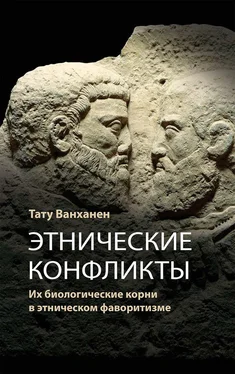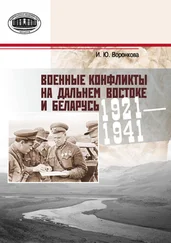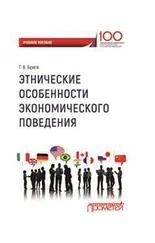Thayer, B. A. (2004). Darwin and International Relations: On the Evolutionary Origins of War and Ethnic Conflict. Lexington: University press of Kentucky.
Thomay, L. F. (1993). The Natural Law of Race Relations. Washington, D. C.: Scott-Townsend Publishers.
Toft, M. D. (2003). The Geography of Ethnic Violence. Princeton: Princeton University Press.
Tristan, P. (2008). Bahrain: Shiite Majority, Sunni Rule. About.com: Middle East Issues. http:www.middleeast.about.com/od/Bahrain/.
UNDP (United Nations Development Programme. (2004). Human Development Report 2004: Cultural Liberty in Today’s Diverse World. New York: United Nations Development Programme.
UNDP. (2006). Human Development Report 2006: Beyond scarcity: Power, poverty and the global water crisis. New York: United Nations Development Programme.
UNDP. (2010). Human Development Report 2010: The Real Wealth of Nations: Pathways to Human Development. New York: United Nations Development Programme.
Usman, B. (2003). Violent Ethnic Conflicts in Nigeria – Beyond Myths and Mystifications. Analysis 2, 2. http://www.ceddert.com/ analysis-02-01-03-6.htm.
Utas, M. (2006). War, Violence & Videotapes: Media and Localised Ideoscapes of the Liberian Civil War. In P. Kaarsholm (Ed.), Violence, Political Culture & Development in Africa. Oxford: James Currey.
Vanhanen, T. (1991). Politics of Ethnic Nepotism: India as an Example. New Delhi: Sterling Publishers.
Vanhanen, T. (1999a). Ethnic Conflicts Explained by Ethnic Nepotism. Research in Biopolitics, Volume 7. Stamford, Connecticut: JAI Press.
Vanhanen, T. (1999b). Domestic Ethnic Conflict and Ethnic Nepotism: A Comparative Analysis. Journal of Peace Research 36, 1, 55-73.
Vanhanen, T. (2003). Democratization: A comparative analysis of 170 countries. London and New York: Routledge.
Vanhanen, T. (2004). An Exploratory Comparative Study of the Relationship between Ethnic Heterogeneity and Welfare Politics,” in F. K. Salter (ed.), Welfare, Ethnicity, and Altruism: New Findings and Evolutionary Theory. London: Frank Cass, pp. 88-118.
Vanhanen, T. (2009). The Limits of Democratization: Climate, Intelligence, and Resource Distribution. Augusta, GA: Washington Summit Publications.
Vanhanen, T. (2012). Ethnic Conflict and Violence in Heterogeneous Societies. The Journal of Social, Political andEconomic Studies 37, 1, 38-66.
Verney, P. (1995). Sudan: Conflict and minorities. Minority Rights Group International Report. London: Minority Rights Group.
Vlassenroot, K. (2006). A Societal View on Violence & War. Conflict & Militia Formation in Eastern Congo. In P. Kaarsholm (Ed.), Violence, Political Culture & Development in Africa. Oxford: James Currey.
Walter, B. F. (2004). Does Conflict Beget Conflict? Explaining Recurring Civil War. Journal of Peace Research 31, 3, 371-388.
Ward, M. D. and Gleditsch, K. S. (1998). Democratizing for Peace. American Political Science.
Waters, M. C. (1996). Ethnic and racial groups in the USA: Conflict and cooperation. In K. Rupesinghe and V. A. Tishkov (Eds), Ethnicity and power in the contemporary world. Tokyo: United Nations University Press.
WDM. See Minority Rights Group International.
Weede, E. (2004). On Political Violence and its Avoidance. Acta Politico 39, 2, 152-178.
Weiner, M. (1992). Peoples and states in a new ethnic order? Third World Quarterly 13, 2, 317-333.
Whiteman, K. (1988). Chad. The Minority Rights Group, Report No. 80. London: Minority Rights Group.
Wilbert, G. (2004). Racism and Racial Divides in Venezuela. Venezuela News, Views and Analysis. http://www.venezuelananalysis.com/aalysis/322.
Wilson, E. O. 1975. Sociobiology: A New Synthesis. Cambridge, MA: Harvard University Press.
Wilson, E. O. (2012). The Social Conquest of Earth. New York: Liveright Publishing Corporation.
Winn, P. (2006). Americas. The Changing Face of Latin America and the Caribbean. Third Edition. Berkeley: University of California Press.
Wolff, S. (2006). Ethnic Conflict: A Global Perspective. Oxford: Oxford University Press.
The World Bank. (2010). World Development Report 2010: Development and Climate Change. Washington, DC: The World Bank.
World Conflict List. From dKosopedia. (2007). http://dkosopedia.com/ wiki/World_Conflict_List.
World Directory of Minorities and Indigenous Peoples. (2008). Minority Rights Group International. http://www.minorityrights.org.
World Directory of Minorities. (1997). London: Minority Rights Group International.
The World Factbook. See Central Intelligence Agency.
The World Guide: Global Reference, Country by Country. (2007). 11th edition. Oxford: New Internationalist Publications Ltd.
Wyrod, C. (2008). Sierra Leone: A Vote for Better Governance. Journal of Democracy 19, 1, 70-83.
Этничность – комплекс отличительных свойств этноса (от греч. ἔθνος – народ). В научный оборот термин «этнос» ввел русский ученый-эмигрант Сергей Михайлович Широкогоров (1887-1939) в работе «Этнос: Исследование основных принципов изменения этнических и этнографических явлений. Шанхай, 1923». (Известия Восточного Факультета Государственного Дальневосточного Университета. Вып. XVIII. Т. 1). По определению Широкогорова: «Этнос есть группа людей: а) говорящих на одном языке; б) признающих свое единое происхождение; в) обладающих комплексом обычаев, укладов жизни, хранимых и освященных традицией, отличаемых от обычаев других групп». В отечественной литературе советского периода в качестве примерного эквивалента термина «этнос» служил термин «народ». (Прим. пер.)
Объясняющая переменная (explanatory variable) – то же, что независимая переменная, экзогенная переменная. ( Прим. пер .)
Примордиальный (от лат. primordialis – первоначальный, изначальный) – первичный, первый в том или ином отношении, генетически присущий. (Прим. пер.)
Аскриптивный – определяемый не объективными качествами, а общепринятым общественным мнением. Например, аскриптивный статус – предписанный статус личности, определяемый обществом независимо от усилий и заслуг личности на основе происхождения, места рождения и т. д. (Прим. пер.)
Инклюзивный (от лат. include – заключаю, включаю) – предполагающий включение кого-либо, чего-либо в общую картину, в какое-то множество. (Прим. пер.)
Читать дальше
Конец ознакомительного отрывка
Купить книгу







![Кеннет Клок - Конфликты на работе [Искусство преодоления разногласий]](/books/404443/kennet-klok-konflikty-na-rabote-iskusstvo-preodol-thumb.webp)




